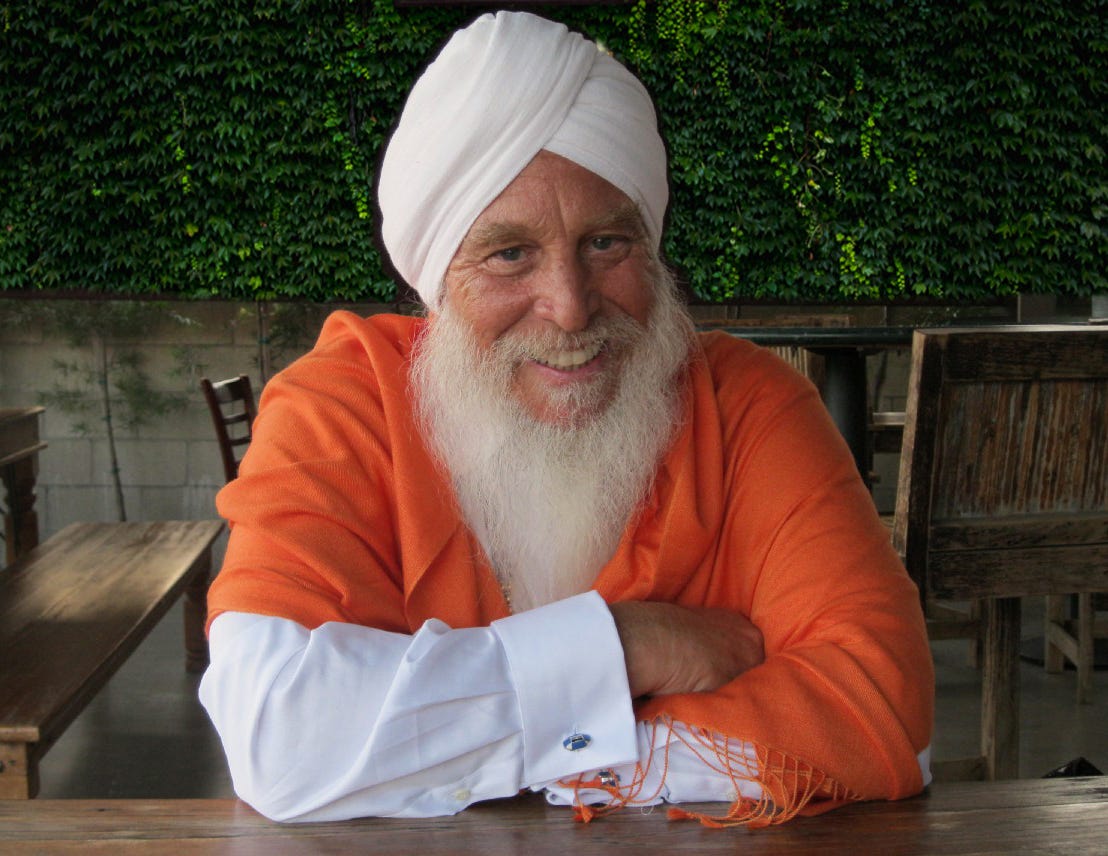Meet the Anesthesiologist who Started the Alzheimer’s Prevention Movement
8 Questions for Dr. Dharma Singh Khalsa + Book Tour News
Google “brain health” and “meditation” and more than 62 million citations come up. Back when UCSF trained anesthesiologist Dharma Singh Khalsa, M.D. started looking into how meditation impacts the brain’s ability to resist Alzheimer’s, there would have been no hits at all. Not to mention, this was before the internet and no one in the medical community was even talking about Alzheimer’s prevention.
Fast forward 30 years: Dr. Khalsa is the founder of the Alzheimer’s Prevention and Research Foundation (APRF), has published over 40 papers on the link between lifestyle and dementia, and has participated in multiple landmark clinical trials like the FINGER study. His organization was the first to offer a training program in brain longevity for allied health professionals. Throughout his career, Dr. Khalsa has delivered the clear message that meditation and other lifestyle habits are important tools to slow down the aging of the brain.
I became acquainted with Dr. Khalsa through his work in Alzheimer’s prevention, and was honored to join APRF as a member of its Medical and Scientific Advisory Council. At age 77, as Dr. Khalsa prepares to share some of his future responsibility as the leader of APRF, he answers my questions about his legacy, the future, and what you can do to protect your brain.
8 Questions for Dr. Dharma Singh Khalsa
BHK: You have been studying the impact of meditation on the brain since you were in medical training. As an anesthesiologist, what first sparked your interest in brain health and dementia?
Dr. Khalsa: As an anesthesiologist, I knew about how stress is terrible for your body and brain. After taking basic and advanced training in mind/body medicine at Harvard, I came to appreciate that connection even more. I then became involved in treating chronic pain patients at The University of Arizona and designed a pain program using holistic methods not unlike our 4 Pillars Of Brain Longevity.
What I discovered was that my pain patients, many of whom also had memory loss, recovered their memory using this program.
I then read a book called Peak Performance by Charles Garfield, Ph.D., which put the icing on the cake for me in that it combined what I knew from practicing yoga and meditation myself, and studying with a great master. I more fully appreciated the power of your mind to manifest health and well-being.




